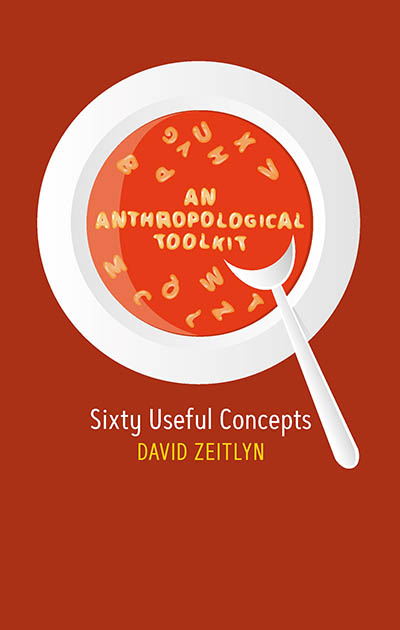“Reflecting this eclecticism of social science research and writing, this slim volume is a good complement to college and university programs in the social sciences. Its message and contributions will also resonate with practicing professionals in social science fields…Recommended.” • Choice
“The book’s pocket size and relatively short length are deceptive, given what it actually offers…While it works really well as a pedagogical tool for teaching both ethnography and anthropological theory, it offers more than that. Zeitlyn has written a book that is inspirational for seasoned anthropologists too… This is a methodologically and theoretically grounded starting point for appreciating both the complexity and messiness in people’s conduct and lives, while also not shying away from trying to apprehend the patchworks (or dapples) of ‘discernible patterns in the way that people live their lives’.” • Social Anthropology/Anthropologie Sociale
“An Anthropological Toolkit is an engaging and readable rethink of how ethnographers might approach their materials… The chapters will help any reader think more richly about their interpretations of the world.” • Anthropological Journal of European Culture
“I have much enjoyed reading this book. It is a rich collection of ideas and images to support empirical qualitative social science. It is phrased for anthropologists in the first instance, but is applicable as well to historians, sociologists, and anyone else trying to deliver a close and insightful account of social life.” • Michael Carrithers, Durham University
Presenting sixty theoretical ideas, David Zeitlyn asks ‘How to write about anthropological theory without making a specific theoretical argument.’
“David Zeitlyn has written a wryly engaging, short book on, essentially, why we should not become theoretical partisans—that, indeed, being a serious theorist means accepting precisely that principle.”—Michael Herzfeld, Harvard University
To answer, he offers a series of mini essays about an eclectic collection of theoretical concepts that he has found helpful over the years. The book celebrates the muddled inconsistencies in the ways that humans live their messy lives. There are, however, still patterns discernible: the actors can understand what is going on, they see an event unfolding in ways that are familiar, as belonging to a certain type and therefore, Zeitlyn suggests, so can researchers.
From the introduction:
This book promotes an eclectic, multi-faceted anthropology in which multiple approaches are applied in pursuit of the limited insights which each can afford…. I do not endorse any one of these idea as supplying an exclusive path to enlightenment: I absolutely do not advocate any single position. As a devout nonconformist, I hope that the following sections provide material, ammunition and succour to those undertaking nuanced anthropological analysis (and their kin in related disciplines)…. Mixing up or combining different ideas and approaches can produce results that, in their breadth and richness, are productive for anthropology and other social sciences, reflecting the endless complexities of real life.
…This is my response to the death of grand theory. I see our task as learning how to deal with that bereavement and how to resist the siren lures of those promising synoptic overviews.
This book is relevant to anthropology, communication studies, cultural studies and sociology.
David Zeitlyn has been working with Mambila people in Cameroon since 1985. He taught at the University of Kent, Canterbury, for fifteen years before moving to Oxford as Professor of Social Anthropology in 2010. His recent books include Mambila Divination: Framing Questions, Constructing Answers (Routledge, 2020).
Related Link:
Central detail from the Hesse net or network diagram of cross-references between the concepts in An Anthropological Toolkit. Image generated with Graphviz © David Zeitlyn.

Area:
LC: GN11 .Z45 2022
BISAC: SOC026040 SOCIAL SCIENCE/Sociology/Social Theory; SOC002010 SOCIAL SCIENCE/Anthropology/Cultural & Social; SOC019000 SOCIAL SCIENCE/Methodology


